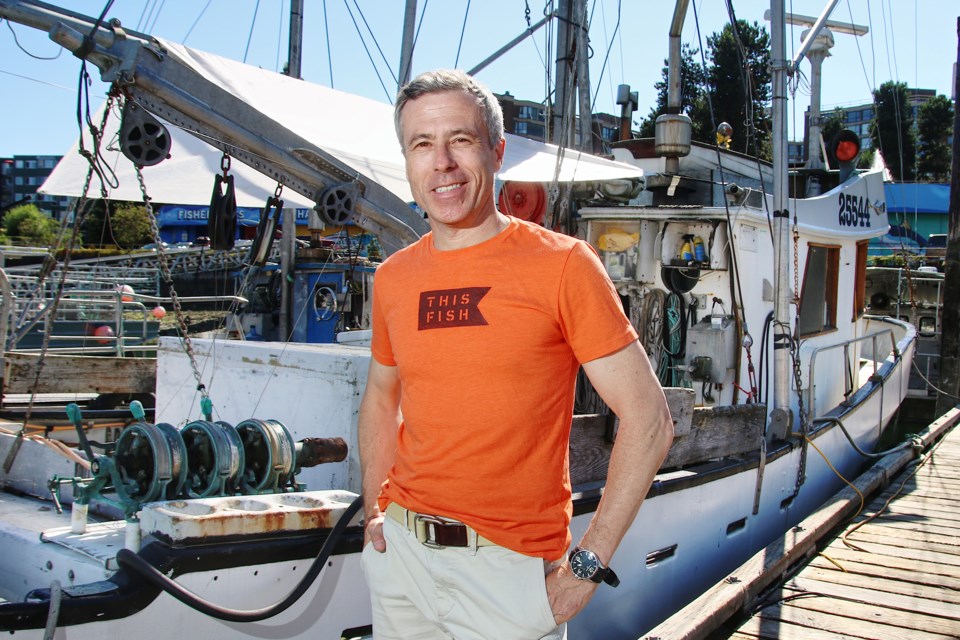Several B.C. companies are grasping opportunities in Japan’s increasingly open market, as the province explores new international ties under the cloud of U.S. tariffs and trade action.
One of the priority markets highlighted in Premier David Eby’s June trade mission to Asia, Japan presents strong potential for local businesses — though experts say it can take time for B.C. firms to gain a foothold.
ThisFish Inc., a Vancouver-based company that uses AI to help seafood processors digitize and automate data collection on the factory floor, recently signed its first deal with a Japanese firm after three years of working on the market.
“We’ve entered many markets around the world, and Japan is one of the toughest to enter for sure,” said Eric Enno Tamm, co-founder and CEO of ThisFish.
“But Japanese are much more loyal in their business practices than, I think, in the West, so once you get into the Japanese market and have built good relations with Japanese companies, they’ll be very loyal customers.”
Tamm said the team invested a lot of effort into Japan after seeing strong growth potential in the agritech sector in the country, one of the largest seafood markets and producers in the world.
He said although Japan is technologically advanced around industrial manufacturing, it lags behind on the digital front.
“We saw a huge opportunity for potentially selling our software into the Japanese seafood sector,” said Tamm.
Japan’s domestic seafood consumption has declined over the past two decades, partly due to a shift in younger generation diets toward more Western and plant-based foods. According to Japanese government data, seafood consumption in the country hit a new low in 2023 — down 47 per cent from its 2001 peak.
As a result, more Japanese companies are looking overseas to grow revenue, which makes traceability and compliance with export regulations increasingly important, according to Tamm.
“Many of them are looking to upgrade their food safety, quality control systems in their factories and to digitize them,” he said.
Like ThisFish, Lumiense Photonics Inc., a Vancouver-based semiconductor company specializing in image sensors, has also been actively pursuing partnerships in Japan.
The company recently expanded its presence in the country by signing a deal with a local telecommunications firm to use Lumiense’s image sensor technology to advance their products.
“We as Canadians, especially in the most recent events of the last six to eight months, have to be much more looking abroad and form coalitions more broadly,” said Rob Hannebbauer, CEO of Lumiense.
Hannebbauer said he has noticed a shift in recent years in Japanese company culture, with big companies wielding less influence and many interesting startups emerging.
A recent example is Fujitsu General Limited’s sale of its power models business, which Lumiense had partnered with before, in June to streamline operations within its tech solutions business.
“You’re starting to see a real groundswell of entrepreneurship and some of the companies that have been reconfigured are much more open to reaching out,” said Hannebbauer.
B.C. firms urged to take long view in Japan
Interest from B.C. businesses in Japan has noticeably increased amid the post-pandemic recovery and global supply chain realignments, according to the Vancouver-based Japan Canada Chamber of Commerce (JCCC).
As a key partner in the Comprehensive and Progressive Agreement for Trans-Pacific Partnership (CPTPP), Japan is an attractive market for many B.C. firms — particularly in cleantech, agrifood, digital services, life sciences and advanced manufacturing, said Kenki Miyanabe, director of JCCC.
He also expects growth in areas such as green transformation, carbon credit trading and decarbonization — including hydrogen energy.
“Japan’s goals for carbon neutrality and digitalization align well with B.C.’s strengths in innovation and sustainable technologies,” said Miyanabe.
With one of the most rapidly aging societies globally —nearly 29 per cent of Japanese citizens aged 65 and older — Japan presents significant potential for B.C. innovations and technologies related to elderly and preventative healthcare. according to the B.C. Ministry of Jobs and Economic Growth in a statement.
B.C. exported nearly $5.65 billion worth of goods to Japan last year, making it the province’s third-largest export destination, following a record 2023 with exports exceeding $6.23 billion. Energy, mineral and wood products topped the list.
Machinery and equipment — including electronics and communications — saw a 28.1-per-cent increase in May 2025 compared to the same month the previous year, reaching over $12.2 million.
However, the Japanese market can be difficult to break into initially, due to language barriers, cultural differences and lack of publicly available business data, according to those who spoke with BIV.
“Generally, Japanese companies are characterized by their emphasis on building relationships of trust, strict adherence to deadlines, quality control and focus on customer needs,” said the Consulate General of Japan in Vancouver in a statement.
“Japanese companies tend not to be driven by short-term profits, but rather to seek medium- to long-term profits.”
Choosing the right Japanese partner is essential, said Miyanabe, as is identifying the true decision-makers in a Japanese company and building multi-layered relationships — not only with executives but also with operational decision-makers — since titles may not always reflect who holds actual authority.
He added that decision-making within a Japanese company can take much longer than in a typical Canadian company, requiring patience and resilience from B.C. firms.
However, Miyanabe said the efforts are well worth it, as once firms establish relationships and partnerships in Japan, they tend to last.
“Japan is not just a short-term sales market. It serves as a high-value co-creation platform where quality, trust, and long-term relationships drive sustained success across Asia,” he said.
“I always say to people that Japan is not a rotating table where dishes change quickly. Japan is like its cuisine — once you’re on the table, your dish doesn’t move much. It’s stable and tasty.”




